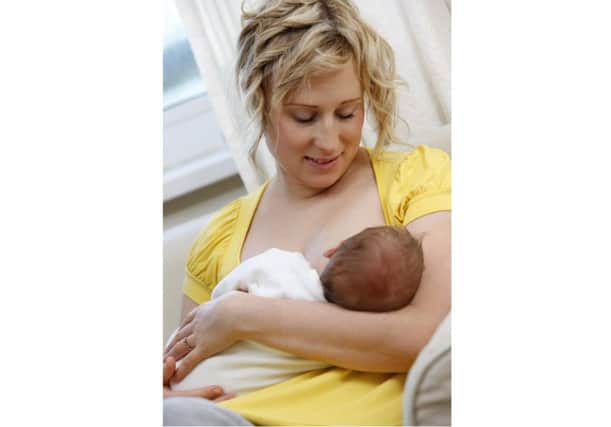Midwives told women who do not breastfeed '˜must be respected'


Updated advice from the Royal College of Midwives (RCM) stresses that new mothers should be given appropriate support if they make an informed decision to bottle feed.
The new guidance still says babies should be exclusively breastfed for the first six months of their life, in line with advice from the World Health Organisation (WHO).
Advertisement
Hide AdAdvertisement
Hide AdBut the RCM has acknowledged that some mothers struggle to start or carry on breastfeeding, and says the decision is a woman’s right.
Chief executive Gill Walton said: ‘Evidence clearly shows that breastfeeding in line with WHO guidance brings optimum benefits for the health of both mother and baby. However the reality is that often some women for a variety of reasons struggle to start or sustain breastfeeding.
‘The RCM believes that women should be at the centre of their own care and as with other areas of maternity care, midwives and maternity support workers should promote informed choice.
‘If, after being given appropriate information, advice and support on breastfeeding, a woman chooses not to do so, or to give formula as well as breastfeeding, her choice must be respected.’
Advertisement
Hide AdAdvertisement
Hide AdThe National Childbirth Trust has previously warned that women can face judgment or feel guilty about the decisions they make when it comes to feeding their baby.
But the RCM says it recognises that ‘some women cannot or do not wish to breastfeed’.
‘They must be given all the advice and support they need on safe preparation of bottles and responsive feeding to develop a close and loving bond with their baby,’ Ms Walton added.
‘We know that every woman wants the best for her baby and we want to be able to empower our members to support women to be the best they can be and enable them to make decisions that are right for themselves and their babies.’
Advertisement
Hide AdAdvertisement
Hide AdThe organisation also says those who choose to breastfeed need more support and should not feel “guilty of embarrassed” about breastfeeding in public.
Research has found breastfeeding can have long-term health advantages, with children less likely to develop diabetes or become obese later in life.
But the UK has one of the lowest breastfeeding rates in the world. A recent report found just over a third (34 per cent) of babies are receiving any breast milk at six months, compared with 62.5 per cent in Sweden.